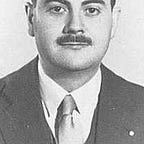To Ask, or Not to Ask… That is the Question!
Asking the right questions should be high up in the ranking of the hardest things out there. Asking with skill and sincerity to others, and to ourselves, corresponds to qualify it almost as an art. Such a skill or trade can be learned and taught. For this it is necessary to have a wise teacher and humble disciples attentive to the instructions. All skill is graspable with practice, aptitude, and disposition.
The innate ability to examine our conscious thoughts and feelings is the first tool for exploring the mind and soul. Introspection through self-reflection and self-knowledge clears the mirror of who we are, where others see us and our selves reflected.
On our roots are the most human existential questions: Who am I? What do I live for? Why do all men die? What is the meaning of life? What happens after death? Where is happiness? Its ramifications are born in our tree trunk, where deep and essential questions need to be answered: What or who defines what I am? What makes us valuable? Why am I the way I am? Can I change? Are there truly human universal traits that are unchangeable? Do all lives have a meaning like the compass has its north? Is there a ‘meaning magnetism’ that gives us value? Does behavior always need a relationship? What defines a relationship?
What we know…
I am a Homo Sapiens and my intellectual abilities set me apart from all other known species. I am also one of several species of great apes, showing more than 99% similarity in DNA sequence to chimpanzees. The tension between striking behavioral divergence versus phylogenetic continuity presents an enigma. It remains a serious challenge to understand how the unique characteristics of modern human behavior map to evolutionary changes in neural structure. (Sherwood, Subiaul, Zawidzki, 2008)
The actions that I perform are representative part of the definition of my species. My way of working is the expression of what I am, my essence. My link with the context, and from there to me, defines the responses I give (or not) to my environment or the stimuli I receive. The way I do is a part of my being, but it does not define absolutely what I am. My value is intrinsic, my life is worth for the simple fact of existing. Between my exclusive and individual value and my actions I am showing outside myself who I am in how I act. The habitual nature of my actions defines a perception in others of my uniqueness, and that behavioral habitualness hammers the nails of routine in my brain.
The good news is that while we are alive, we can change, no matter how much the hammer has struck the nail in reason. This is one of the wonders of the human being! Our physical, mental and spiritual habits can be modified almost from the radices. We can transplant and take new roots just about anywhere. One of the first resources we have to achieve this is to question ourselves. Going back to the time of the womb to existential questions is the best way to improve.
According to some scholars, studies and publications (here, here and here) there are some universal traits that define living beings and in particular human beings: Behavior, and how it adapts evolutionarily. The motivation to be altruistic. Plasticity to withstand changes in the environment. Complex communications, language. The use of symbols to represent ideas or qualities, we could also speak of personal branding. The technological sophistication of applying our knowledge, for example, to modify the environment. The ability to imitate nature and other beings. New cognitive abilities to perceive, attend, remember, solve problems and think analogically. We are social beings by nature. We have a unique individuality.
These universal traits imply that as a species our behavior is part of a pattern that our animal ecology produces. That means that human behavioral processes evolved because evolution depends on ecological processes. Ecology needs behavior to understand why the results depend on the context. All of this has the same root. Everything. If we answer the primary, original, main doubts, we can not only change ourselves but also launch a new evolutionary process for the entire species. Therefore, to ask ourselves, or not to ask ourselves, that is the question.
